The moral and ethical nature of Section 31 comes into question in the latest Trek novel from author David Mack.
“I can’t deny there’s rot in the core of Starfleet. In the heart of the Federation. I’ve seen it.’ [Bashir] looked up at Garak, and his eyes had the hard, unyielding focus of a man ready to go to war. ‘I came to you because I need to know how to stop it. How to end it. How to destroy it.’
‘Well, that’s simple, Doctor. What worked for Cardassia will work for the Federation. To excise this cancer from your body politic, all you need to do is kill the body, burn it down to ash, then resurrect and rebuild it with wiser eyes and a sadder heart.’”
David Mack’s brand new Star Trek novel, Section 31: Control, is filled with portentous and grim pronouncements like these about the threat that the shadow-organization Section 31 poses to the ethical fiber and very life of the United Federation of Planets. And the only people who can stop it are Doctor Julian Bashir and Sarina Douglas, and even though both are genetically-augmented super-geniuses, Section 31 is directed by an entity whose intellect and scope of operations may completely outclass the two of them combined.
NO-SPOILERS REVIEW: “Star Trek Section 31: Control”
Author: David Mack
Publisher: Pocket Books
Format: Mass Market Paperback & E-Book (368 pages)
In TrekMovie’s recent interview with David Mack, the author expressed his delight at the way the book’s blood-red cover design perfectly meshes with the level of violence and threat in the interior pages, and he’s right. The menace posed by the head of Section 31, a mysterious entity known only as “Control,” is beyond what the Federation faced at the hands of the Dominion, the Xindi, the Romulans, or the Klingons throughout televisual Trek.
Mack’s opening scene is a dramatic homage to the climax of Captain America: The Winter Soldier, but it serves merely as the jumping-off point for a story that sweeps us through Federation history, starting more than a decade before the launch of the NX-01, carrying us through the maiden voyage of that pioneering Warp 5 starship, the establishment of the UFP, and on to the adventures of Kirk, Picard, Sisko, Janeway, and more. Mack paints a dark backdrop to the familiar voyages we know so well, adding the brooding presence of Section 31 behind it all.
Because Trek novels are licensed fiction, the author is playing with established characters, whom the reader knows intimately before reading the even the first page. This is both a challenge and an opportunity; the author doesn’t need to tell us much about Bashir, Douglas, or Garak, because we know who they are. For the most part, Mack dodges the dangers inherent in licensed work, capturing the unique voices of each of these well-known characters. Mack wrote Bashir so well that I could hear Alexander Siddig’s voice in my head as I read, and the same was true for the many other familiar characters that take part in the narrative in surprising ways.
I’m not sure I’d describe the story as “blood-soaked,” as Mack does, but the major characters undergo severe trials during the course of the story, and their lives are altered in fundamental ways by the events that unfold. I appreciated the high stakes, and the fact that the characters looked at the consequences straight in the face, and made their choices knowingly.
Along the way, Mack raises the difficult question of whether human beings could achieve the sort of utopian society portrayed in the Star Trek mythos on their own, without the guiding hand of an advanced superior being. Mack’s answer strikes at the very heart of Gene Roddenberry’s belief in the natural perfectibility of the human race. I deeply appreciated the fact that Mack was willing to raise these issues, and to incorporate the discussion so deeply into the narrative.
Sadly, in one spot, the novel relies on the hoary cliché of the protagonist rushing in to save his beloved, even at the risk of unimaginable devastation to countless others, because he “can’t live without her.” While other characters object, love is its own justification. Given Mack’s skill in exploring ethical dilemmas, I would have liked to see more attention paid to the complexities of love and heroics.
Star Trek Section 31: Control is a fast-paced, high-stakes, plot-driven book that explores questions that Star Trek needs to deal with. It dives into these issues in interesting ways, and rewards careful attention to the ethical discussions within. If at times it rests on character familiarity and romantic cliché, it does so in the course of a thinking reader’s action thriller that holds your attention from the first page to the last.
Star Trek Section 31: Control is available now, and you can buy it from Amazon and other booksellers.
For more on the novel, check out the TrekMovie interview with author David Mack.

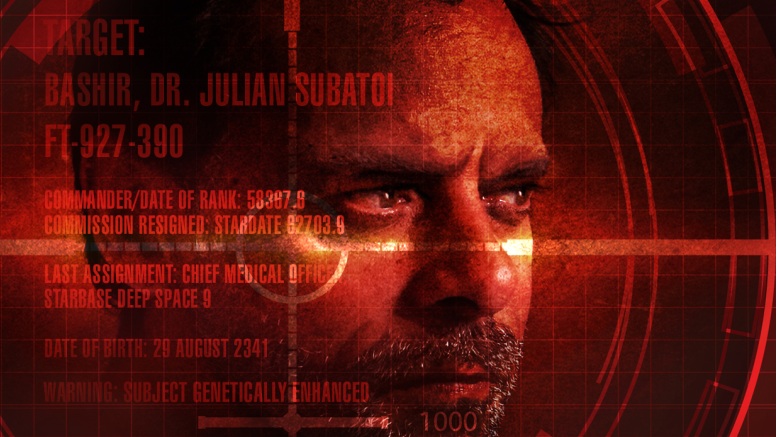
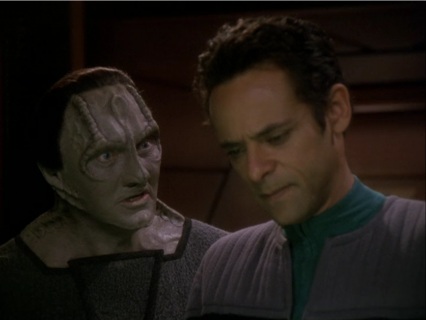
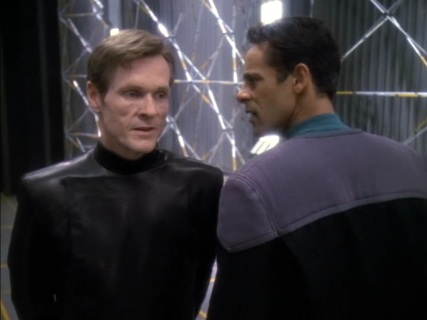

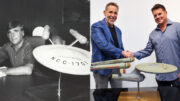
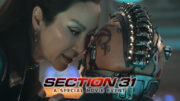
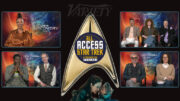
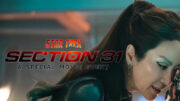
I fell out of reading these type of books because the dialog is so awful. In that small excerpt alone there’s two phrases that jump out as unnatural. Obviously they have to paint a picture for the reader but no one, anywhere, talks like that.
I can hear Alexander Siddig and Andrew Robinson saying those lines in my head pretty clearly – to me, the dialogue sounds like the characters from the show, even if it doesn’t sound like what people around me would normally say.
The Destiny trilogy was probably as good as David Mack got for Trek. Nothing else has grabbed me really…
I never did warm up to how Mack portrayed Serena Douglas. I liked her in the series and was initially excited to have her back, but was turned off by how she danced on the edge of being a corrupting influence on Bashir. Bashir was friends Garak, for goodness sake; you think he’d be able to tell when he was being played, even by his supposed dream girl. So the relationship doesn’t do much for me. Still, I do like the Section 31 skullduggery, even moreso when they’re they antagonists, so I might pick this up.
Anduinel, thanks for your comment. I haven’t read the other books in the series, so this was my first exposure to Serena Douglas, beyond the character’s appearances in Deep Space Nine, the TV series. I thought the Section 31 skullduggery was very well portrayed in this novel, so you may well enjoy it.
It was well written, but I found the ending far too depressing, and the retroactive pall that it casts over literally the entire history of the Federation and the Star Trek franchise just doesn’t sit well with me. I was very excited about this book, and I appreciate how well written it was- even enjoyed it for most of its length. But by the end, the experience left me sour.
Zarm, the “retroactive pall” that you speak about will, I believe, be the sticking point for many Trek fans, even though it wasn’t a bad thing, for me. Philosophically, I have never bought into Gene Roddenberry’s belief that humanity would evolve into peaceful cooperation on our own. Mack posits a necessary outside influence – although it’s malevolent (or is it?) in this case.
Denes House,
“Along the way, Mack raises the difficult question of whether human beings could achieve the sort of utopian society portrayed in the Star Trek mythos on their own, without the guiding hand of an advanced superior being. Mack’s answer strikes at the very heart of Gene Roddenberry’s belief in the natural perfectibility of the human race.” — Denes House
How do you commiserate this “strikes at belief” of yours with the Gary7 pilot that he introduced to STAR TREK?
Where Gene has the character say “This is the most critical period in Earth’s history. The planet I’m from wants to help Earth survive. ” — Gene Roddenberry and art wallace
It’s been a while since I’ve seen THE QUESTOR TAPES, but as I recall it Gene introduced into it that while humans were largely responsible for the construction of the humanoid robot some mysterious outside non-human intelligence had imparted into its artificial psyche something that transformed it into an autonomous being capable of taking on a similar guiding role for humanity?
Disinvited, you’re right that Gary Seven and his people call Gene’s ideal into a bit of question, but Gary Seven is a human being, at least. Control is not.
Denes House,
That’s a bit of a reach to claim a difference. Gary Seven is a human agent recruited and trained to operate at the behest of a non-human boss just as all the human Section 31 agents operate at the behest of the non-human Control.
Fair point!